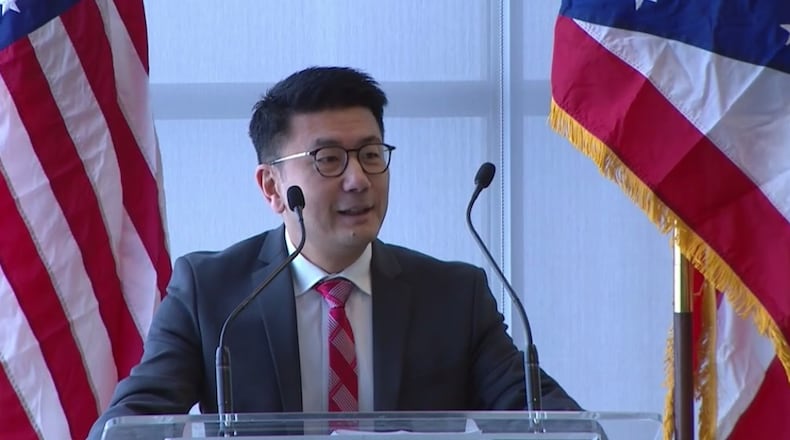The longitudinal study called the State of Ohio Adversity and Resilience (SOAR) study will research risks to mental health, analyzing biological, psychological and social patterns related to mental health across generations.
Researchers want to understand the causes and modifiable risk factors of mental illness in an effort to reduce risks, build resiliency and help families “break the chain” of mental health and substance use disorders, they said Friday.
“Mental illness remains largely a mystery to our researchers, our clinicians and ― because of that ― the public,” Phan said. “And, as a result in the past decade as mentioned, we see a nationwide crisis.”
Nationally, there are approximately 227 deaths per day, including 19 deaths per day in Ohio, related to suicide and drug overdoses.
“To put this into perspective, imagine two to three Boeing 737s crashing without any survivors each and every day,” Phan said.
“There’s never been an effort of this scale with this depth in the history of addiction, mental health and resilience research,” Phan said.
This study will include not only OSU researchers, but they will be partnered with educational institutions across Ohio, including locally at Wright State University and Central State University.
“To take on this effort, we are bringing together the brightest minds across the world to solve the mind’s toughest problems,” Phan said.
The SOAR study will begin with two interrelated projects conducted in parallel in an effort to start collecting data for the project, including:
- The SOAR Wellness Survey will collect information on the social and psychological makeup, real-world experiences and state of mental health of approximately 15,000 Ohioans.
- The SOAR Brain Health Study will collect biological/brain function, psychological and social environment data from approximately 3,600 members of 1,200 Ohio families.
This study is utilizing an initial funding round of $20 million from the Ohio Department of Mental Health and Addiction Services, which was approved by the Ohio General Assembly with bipartisan support, said Gov. Mike DeWine.
Researchers and state officials hope the SOAR study will do for mental illness what the Framingham Heart Study did for heart disease. That study began in 1948 in Framingham, Mass., analyzing risk factors for cardiovascular disease development. That heart study is now on its third generation of participants.
Framingham changed what doctors and researchers knew about the heart and the role that high blood pressure, high cholesterol, blood sugar, and smoking play in the development of heart disease, stroke and dementia, DeWine said.
In that same vein, there is still a lot to learn about mental health, he said.
“Through this work, we believe Ohio has the ability to lead the nation in innovations in prevention, treatment and recovery,” DeWine said.
The SOAR study will last for at least a decade, though DeWine hopes it will continue for decades after that, he said.
About the Author


